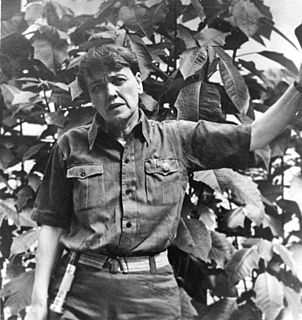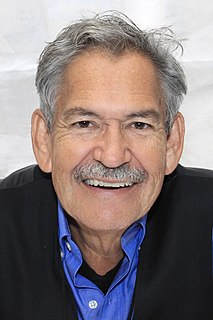A Quote by Mark Haddon
I am atheist in a very religious mould. I'm always asking myself the big questions. Where did we come from? Is there a meaning to all of this? I read the King James Bible, as all English writers should. And when I find myself in church, I edit the hymns as I sing them.
Related Quotes
We got through all of Genesis and part of Exodus before I left. One of the main things I learned from this exercise was not to begin a sentence with "And." When I pointed out that most sentences in the Bible began with "And," I was told that English had changed since the time of King James. In that case, I argued, why make us read the Bible? But it was in vain. Robert Graves at that time was very keen on the symbolism and mysticism in the Bible.
The language of all the interpretations, the translations, of the Judaic Bible and the Christian Bible, is musical, just wonderful. I read the Bible to myself; I'll take any translation, any edition, and read it aloud, just to hear the language, hear the rhythm, and remind myself how beautiful English is.
I'm very religious, you know. Now, OK, if by 'religious', you mean that I go to church every Sunday, read the bible faithfully, and I listen to Debbie Boone, umm, I'm not religious in that sense... But if by 'religious' you mean that I love others and try to help them whenever possible... Again, no. But if by 'religious' you mean that I like to eat coleslaw... Yeah, OK, OK!
If you don't put the spiritual and religious dimension into our political conversation, you won't be asking the really big and important question. If you don't bring in values and religion, you'll be asking superficial questions. What is life all about? What is our relationship to God? These are the important questions. What is our obligation to one another and community? If we don't ask those questions, the residual questions that we're asking aren't as interesting.
Real writers-that is, capital W Writers-rarely make much money. Their biggest reward is the occasional reader's response.... Commentators-in-print voicing big fat opinions-you might call us small w writers-get considerably more feedback than Writers. The letters I personally find most flattering are not the very rare ones that speak well of my editorials, but the occasional reader who wants to know who writes them. I always happily assume the letter-writers is implying that the editorials are so good that I couldn't have written them myself.
Certainly I had from an early age a sense of the power and beauty of religious texts - the awesome magnitude of the Bible stories I was reading as a child. The hymns. The sermons. I can still vividly hear the sermons and the pieces of soft piano music played after them, the preacher asking if anyone wanted to come up to the altar and accept Christ as their savior.
I'm an ex-Catholic priest. I have such a complex relationship to Catholicism. On the one hand, if I called myself a Catholic it would have to be a very unorthodox one, as I just don't believe all of the teachings of the Church. But on the other hand, I'm an educated man because the Catholic Church educated me. It gave me something that is really important to me. So I always think about my faith. I always have it, and sometimes I can't talk about it, and sometimes I can. I am like an adolescent in that way. Teens are asking questions: who is God and what does it mean to have faith?
An excellent habit to cultivate is the analytical study of the King James Bible. For simple yet rich and forceful English, this masterly production is hard to equal; and even though its Saxon vocabulary and poetic rhythm be unsuited to general composition, it is an invaluable model for writers on quaint or imaginative themes.





































